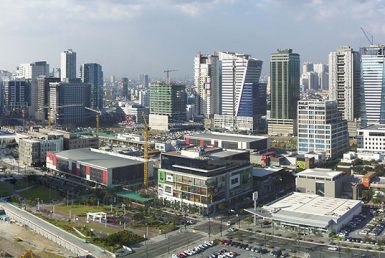REAL ESTATE LAWS AND REFERENCES 5.16
Is Buying Foreclosed Properties A Good Deal?
A straight answer to this question is: it all depends. All opportunities to buy foreclosed properties should be treated on a case to case basis and list all the factors, positive and negative given the minimum bid or price offer by banks. Aside from analyzing the value of the property such as the prevailing market price, lot area, floor area, location, how old the building, design, structure, etc., there is a need to find out from independent sources the real story behind the foreclosure. While it is generally accepted that it is due to financial slump of the owner, but there could be more than that such as financial slump plus the area has unsolvable problem or bears a problem that takes a huge amount to resolve. Take the case of the house and lot foreclosed by a bank in a subdivision in Mandaue City. The lot where the house stands looks good in its location near the exit of the subdivision when the weather is fine but based on deeper interviews with the nearby residents, the front lawn turns into an instant swimming pool for frogs during rainy season since the drainage in the areas near the exit are defective. The owner could not get the other residents to cooperate as they are not affected with the problem being in the higher elevation, so only those few houses located in lower elevation will have to bear the effects of the problem. Despite this problem and the bank knows fully well, the minimum bid remains the same for years and allows it to lay dormant unsold.
Nonetheless, there are excellent profits to be made by investing in foreclosed properties, but before you start, there are a few myths to clear up. First of all, while it’s true a bank or mortgage lender is motivated to get foreclosed properties off its books, it’s usually not possible to buy them as cheap as you can expect. You can, however, almost always purchase them at below-market prices. Second, it’s not true that a lender will be willing to sell the property for just the balance due. The lender will set the price based on the prevailing market rate, and many other factors. And third, your credit will still be a factor.
Another common myth is that foreclosed properties are all in bad neighborhoods. This just isn’t true, particularly as the rate of foreclosures continues to go up. When the economy stumbles, or the interest rates rise, many upscale homes are lost as its owners struggle to meet the increased monthly payments on less income. You will find plenty of foreclosed properties in distressed neighborhoods that represent good value, but you will also find foreclosures in some of the finest communities. . But regardless of location, it is common for foreclosed properties in any area to need at least some repair. In most cases, you will be buying the house “as is,” so factor in an estimated cost of repair when making your bid.
There are three types of foreclosures; you may purchase a home in pre-foreclosure, at a foreclosure auction, or lastly, you may purchase an REO (real estate owned) property that has already been taken back by the bank and has received no bids at an earlier auction. In a short sale, you, the investor, offer the lender a discounted price for a property before the auction takes place. Depending on the property, this can be an excellent strategy for investment. Buying at auction, too, is a good source of deals. But sometimes after the auction, a bank may not receive any bids on a property, or may receive bids that are under its minimum requirement. These Philippine properties are then called “REO” properties, and most lenders will be able to provide you with a list of their REO’s. This list, too, can be an excellent resource for finding good real estate deals.
When you bid on a foreclosed property at auction, it will usually not be possible for you to inspect the property in great detail beforehand, and you will be expected to have solid financing–or cash–on the day of sale.
In addition to buying the property at a discount, it’s not unusual for a lender to offer an investor other incentives, such as attractive interest rates or lower closing costs and points. If the lender doesn’t offer these sorts of incentives, it never hurts to ask for them.
There are banks who offer “rock bottom prices” for their foreclosed properties like in the case of a house and lot in Lahug, Cebu City. The delinquent borrower employs delaying tactics to hold on to his property by way of legal defenses. The lot area is approximately 1000 square meters and the building is already old about 20 years or more. But the minimum bid required is only P4,497,000 For the lot alone, the prevailing market value on this area is easily P12,000 per square meter which one can get a substantial gain even if he will demolish the house and sell only the lot. However, the bank sells this on as is basis including the assumption of the legal case in which case the buyer will have to pursue until the occupant is ejected from the house by way of a sheriff action. This represents a very good opportunity to those who know the laws or at least rely on lawyers who will fight for the possession of the propertywith the belief that the cost of the fighting may only take a few thousand but the legal minded buyer will be confident that eventually he will gain possession and fruits of several millions naturally follow.



